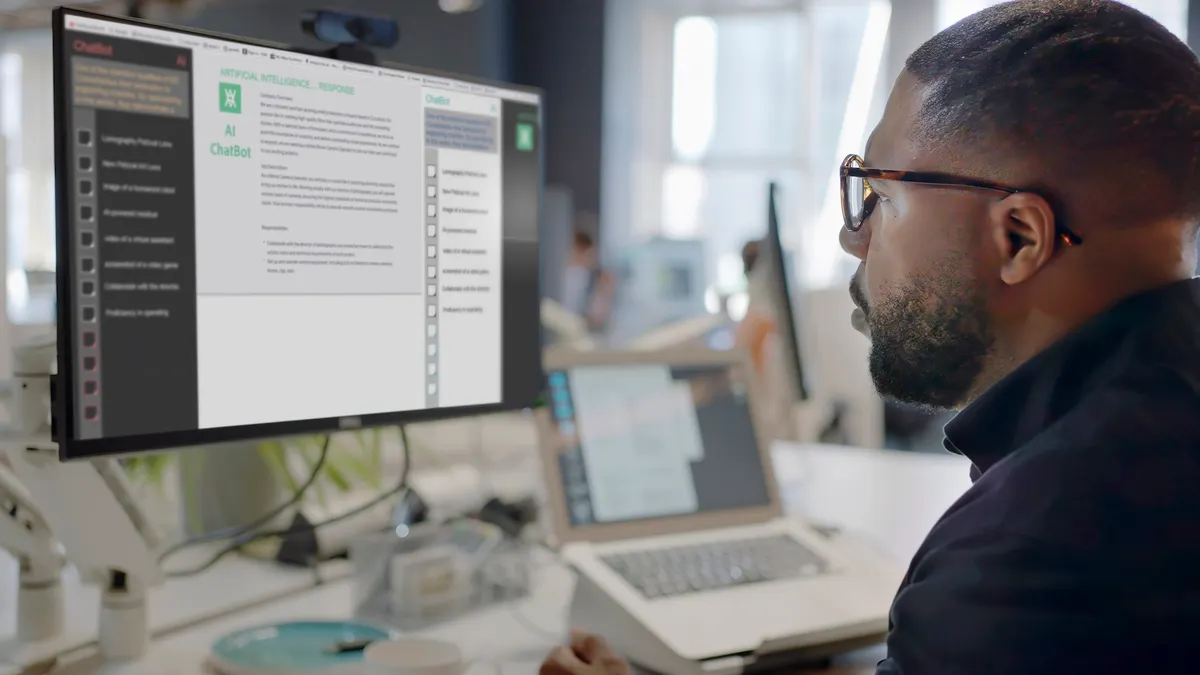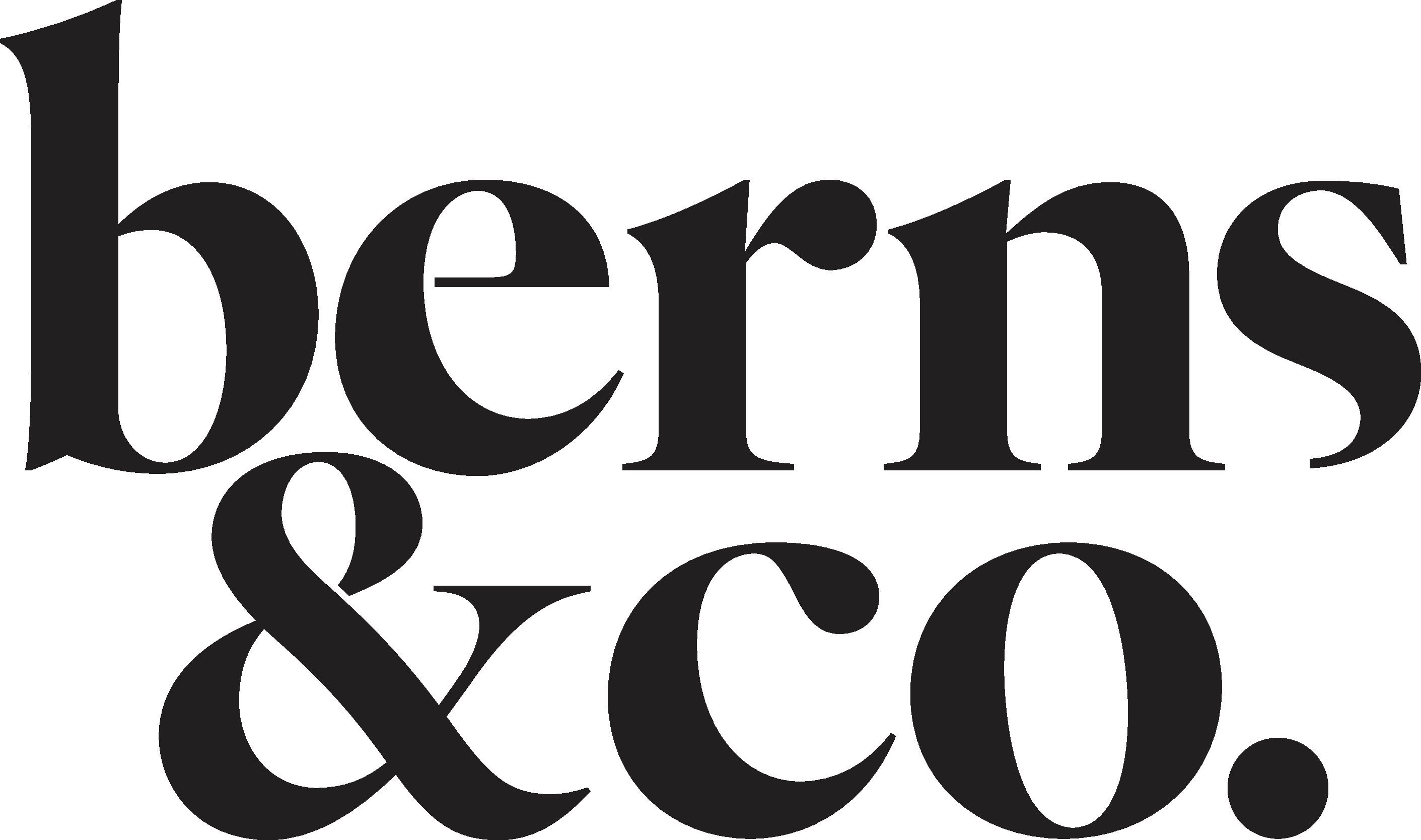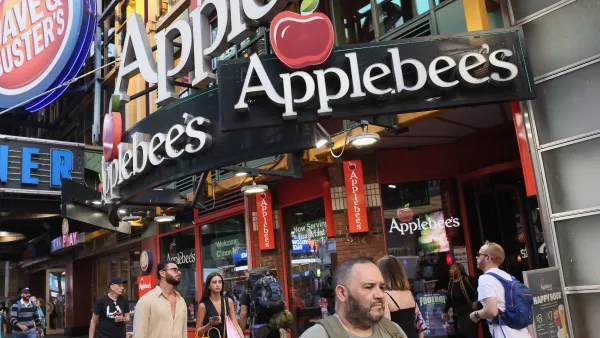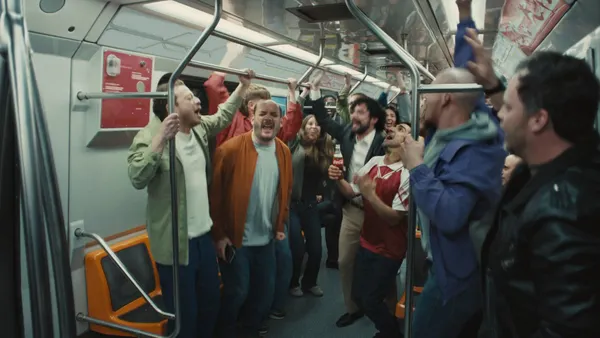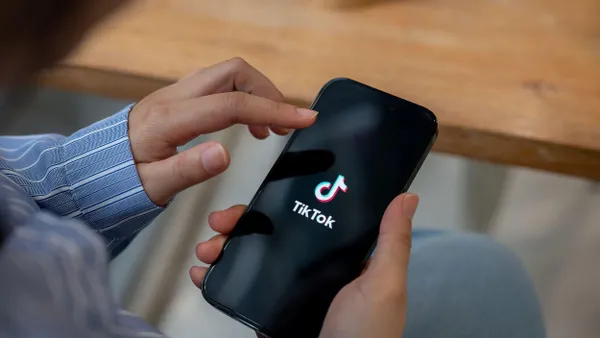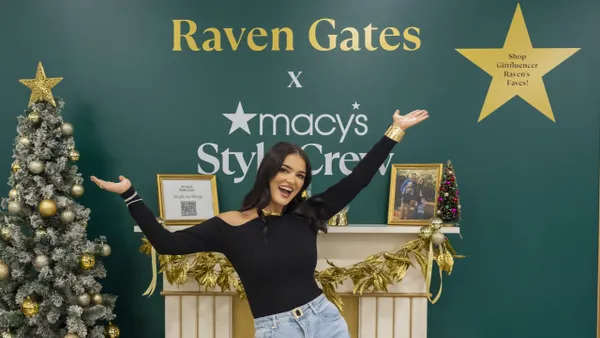Dive Brief:
- The band Gorillaz has unveiled a free iOS and Android mobile app that incorporates a smorgasbord of immersive technologies, including augmented reality (AR), virtual reality (VR) and 360-degree video elements, according to multiple reports. The app's AR offering allows users to overlay components of Gorillaz's recent music videos onto their surroundings, and the VR comes into play in with Google Cardboard for an immersive experience in the band's imaginative house.
- The app launches ahead of Gorillaz' album "Humanz," out April 28, and is part of a multi-pronged effort to promote it. Fans who download the app will be invited to listen to the album in its entirety during a worldwide launch event dubbed the "Humanz House Party." A press release describes it as "the largest ever geo-specific listening experience bringing people together across 500 locations." The brand has also released social media books, portraits of Gorillaz avatars in a Facebook photo album, a 360-degree video on YouTube and pop-up locations called spirit houses in partnership with Sonos.
- Gorillaz, often labeled a "virtual band," has been a digital pioneer since Damon Albarn and Jamie Hewlett founded it in 1998. Members of the band are represented by animated avatars named 2D, Murdoc Niccals, Noodle and Russel Hobbs.
Dive Insight:
In a streaming-dominated music industry, musicians and bands are struggling to rise to the top of listeners' playlists. Over the years, the likes of Britney Spears, Madonna and Taylor Swift have dabbled in apps to circumvent music industry middlemen and connect directly with fans, but, even if they’ve made splashes on launch, the apps have not been powerful sustained forces. (Mobile gaming has provided another avenue onto fans' smartphones, although that’s a different story.)
Disciple Media executives Benji Vaughan and Leanne Sharman argued in The Guardian that apps should get more attention because they let musicians and bands build on the special relationships they have with loyal fans by offering early access to concert tickets, songs and more, and have the advantages of providing data that can be employed to gain insights on audiences to improve monetization. But a decline in app growth and a lack of standout examples of success may have convinced most musicians and brands that native apps are more difficult than they are worth.
In many respects, Gorillaz is an unusual case. The band has avid followers that trust it to push the limits of creativity and technology. It has developed an app that lures those followers with unique high-tech pizzazz as well as traditional music industry perks like an album reveal.
With the app evolving over time, fans will be prompted to return again to engage with the band, and not dump it after a few views. And the app is not a standalone marketing initiative, but only a facet of a full-throttled campaign to generate buzz for "Humanz."
One aspect of the app that will be interesting to watch will be whether it will encourage the masses to try VR in ways headsets have not so far. By linking with Google Cardboard, which has been distributed to millions of people, there’s definite potential for Gorillaz to stimulate widespread, easy to access virtual experiences outside of the gaming community that's previously been VR's consumer sweet spot.


